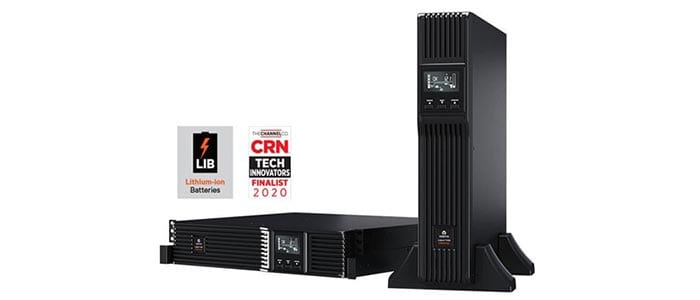VRLA vs. Lithium Ion: Which is Better?
VRLA batteries have preferred UPS energy sources given their reliability, low initial purchase cost, and management ease. However, with the decreased price of lithium-ion batteries over the past few years, they are quickly becoming the preferred option for data centers’ UPSs.
Are lithium-ion batteries the new standard? What are the differences between VRLA and lithium-ion? And most importantly, which is better?
Here are 4 things to consider when contemplating which battery to use.
1. Battery Lifetime
To know how much you’re truly investing in a battery, you must weigh the lifetime. How soon you’ll need to replace the battery determines the end value and overall benefits. Suppliers will measure lifetime in two different metrics: the service life and calendar life.
The service life is the estimated time a battery will last before it reaches 80% of its energy capacity, meaning the end of life for the battery. Service life is determined by the assumption that the battery is operating under everyday “real world” conditions; therefore, it can vary.
The calendar life of the battery is the estimated time that the manufacturer has determined the battery will last if it were to remain trickle charged for its entire life, kept in perfect conditions, with no power outages.
The service life of a VRLA battery is typically 3-6 years. While more expensive at the time of purchase, the Li-ion battery can boast a service life of more than ten years.
2. Size & Weight
Lithium-ion batteries not only have a smaller footprint due to their high energy density, but they are also much smaller in size. Compared to the VRLA batteries, the Li-ion batteries are 70% smaller and 60% lighter.
3. Maintenance
Lithium-ion batteries come with a built-in battery management system (BMS). In contrast, the VRLA batteries require an additional cost if you want to have periodic resistance checks or a BMS added. The BMS provides continuous monitoring of the battery’s health, which prolongs its life and prevents unsafe temperatures, by allowing full control of charging and discharging.
4. Energy vs. Power
Deciding which battery is best for your data center can depend on your specific power needs. UPSs require batteries that can supply large amounts of power in a span of 5-10 minutes. The difference between the VRLA and Li-ion batteries is how much capacity remains after the needed runtime.
The battery energy is measured by power x hours, meaning if the battery provides 100 volts at 10 amps, it can support 1,000 W.
In summary, a power cell provides a large amount of power in a short amount of time, using almost all of the battery’s total energy capacity. An energy cell is designed to provide a relatively small amount of power over a more extended period of time.
The Li-ion batteries are designed as power cells or energy cells, while the VRLA batteries are limited by their design as solely energy cells.
So, Which Is Better?
While the lithium-ion battery’s initial cost is more than the VRLA, they require fewer replacements (if any) over the life of the UPS, eliminating the risk of downtime with battery replacement. The Li-ion battery boasts up to ten times more discharge cycles and about four times less self-discharge.
While the Li-ion battery does have stricter transportation batteries and higher manufacturing cost, they weigh about three times lighter than the VRLA, yet with the same amount of energy potential. To top it off, their charging capabilities are four times faster.
Want to know more about your specific power needs? Contact our experts today to get more information on the right technology for your business.

